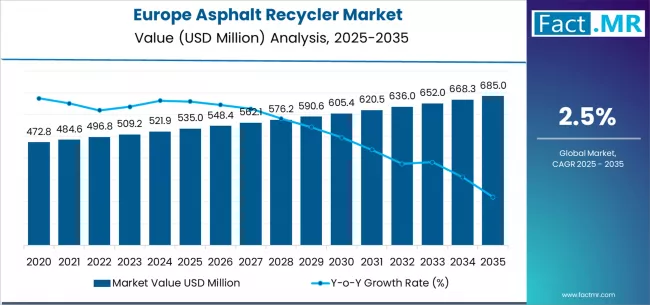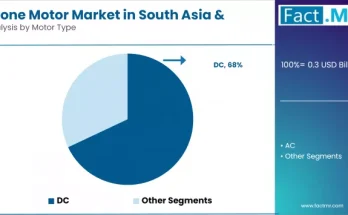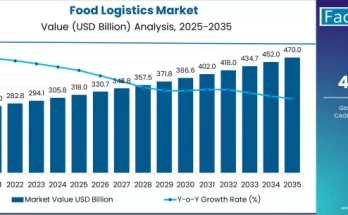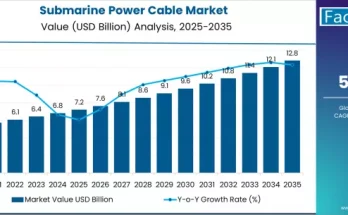The Europe asphalt recycler market is set for steady expansion as the region accelerates sustainable infrastructure development and circular economy initiatives. According to a recent report by Fact.MR, demand for asphalt recyclers in Europe is projected to grow from USD 535.0 million in 2025 to approximately USD 685.0 million by 2035, representing an absolute increase of USD 150.0 million over the forecast period. This translates into total growth of 28.0%, with the market forecast to expand at a CAGR of 2.5% between 2025 and 2035.
As governments, municipalities, and contractors aim to reduce construction waste and carbon emissions, asphalt recycling technologies are emerging as a cornerstone for cost-efficient, eco-friendly, and resource-conscious road maintenance and rehabilitation.
Strategic Market Drivers
- Advancing Circular Construction Practices
Europe’s strong commitment to circular economy principles is driving adoption of asphalt recyclers across public and private infrastructure projects. The technology enables the reuse of reclaimed asphalt pavement (RAP), significantly reducing dependence on virgin aggregates and bitumen while minimizing landfill waste.
European Union (EU) directives promoting green public procurement and sustainable construction practices are further catalyzing market demand, with countries such as Germany, France, and the Netherlands leading large-scale asphalt recycling initiatives. - Cost-Effective and Energy-Efficient Road Rehabilitation
Rising maintenance costs and energy concerns are propelling the shift toward hot and cold in-place recycling methods. Asphalt recyclers offer up to 30% cost savings compared to traditional resurfacing, while cutting fuel consumption and CO₂ emissions.
Municipalities are increasingly investing in mobile asphalt recycling units that enable on-site pavement repair, improving operational efficiency and reducing logistical costs. - Infrastructure Modernization and Smart Mobility
Europe’s focus on modernizing its transportation network—through road expansions, smart mobility corridors, and logistics infrastructure—is expected to elevate asphalt recycler utilization.
The growing emphasis on smart and sustainable road systems—aligned with the EU’s Green Deal and Vision Zero initiatives—will further integrate recycling technologies into future infrastructure planning and development. - Environmental Regulations and Carbon Neutrality Goals
Stringent European environmental policies are pushing the asphalt industry to reduce lifecycle emissions and improve material recovery rates.
Asphalt recyclers play a pivotal role in achieving carbon neutrality targets by lowering raw material extraction and processing emissions. Manufacturers are also developing advanced recycler models with reduced energy consumption, noise levels, and particulate emissions, aligning with EU eco-design and safety standards.
Browse Full Report: https://www.factmr.com/report/europe-asphalt-recycler-market
Regional Highlights
Western Europe: Innovation and Standardization
Germany, France, and the U.K. dominate the region’s asphalt recycling landscape, supported by well-established road networks and policy frameworks favoring sustainable infrastructure.
Public-private partnerships and R&D collaborations are fostering innovations in mobile recycler design, automation, and performance optimization, ensuring consistent quality and compliance with European road standards.
Northern and Eastern Europe: Expanding Infrastructure and Urbanization
Countries such as Poland, Sweden, and Finland are witnessing rising adoption of asphalt recycling technologies amid expanding highway networks and urban infrastructure projects.
Government incentives promoting low-emission construction machinery and material reuse are expected to accelerate market penetration in these regions.
Southern Europe: Focus on Road Maintenance and Sustainability
Italy, Spain, and Portugal are investing in asphalt rejuvenation and maintenance programs to extend pavement lifespan while minimizing environmental impact.
Growing awareness of the benefits of asphalt recyclers—coupled with favorable funding from EU green infrastructure schemes—is expected to boost demand over the coming decade.
Market Segmentation Insights
By Recycling Type
- Hot Recycling: Dominates market share due to superior output quality and long-term durability.
- Cold Recycling: Gaining traction for energy savings and minimal carbon footprint in resurfacing operations.
- Full-Depth Recycling: Emerging as a preferred method for road base stabilization and rehabilitation.
By Application
- Road Maintenance and Rehabilitation: Primary application segment, driven by aging infrastructure across Europe.
- Highway and Expressway Projects: Growing focus on sustainable resurfacing for long-distance networks.
- Municipal and Local Roads: Increased investment in localized, mobile recycling solutions.
Challenges and Market Considerations
Despite its promising trajectory, the market faces notable challenges:
- High Initial Investment: Advanced recycling machinery entails substantial capital expenditure for smaller contractors.
- Operational Complexity: Skilled labor and specialized training are required for efficient recycler operation and maintenance.
- Regulatory Variability: Differing national standards within the EU pose integration challenges for cross-border projects.
- Competition from Traditional Methods: Conventional asphalt paving and resurfacing practices remain entrenched in certain regions.
Competitive Landscape
The Europe asphalt recycler market features a highly competitive and innovation-driven environment, with global and regional players focusing on advanced machinery design, automation, and sustainability integration.
Key Companies Profiled:
- Wirtgen Group GmbH
- Caterpillar Inc.
- Volvo Construction Equipment AB
- BOMAG GmbH
- Roadtec Inc.
- XCMG Group
- SANY Heavy Industry Co., Ltd.
- Astec Industries, Inc.
- CMI Roadbuilding, Inc.
- Marini S.p.A.
These players are expanding manufacturing capacities, introducing energy-efficient and hybrid recycler models, and forming strategic partnerships to strengthen aftersales support and regional distribution networks.
Future Outlook: Toward Smart and Sustainable Asphalt Recycling
The coming decade will mark a transformative phase for Europe’s asphalt recycler market. Integration of IoT-enabled machinery, AI-based performance monitoring, and low-emission heating technologies will redefine operational efficiency and sustainability standards.
As the European Union intensifies its focus on green infrastructure and circular construction, asphalt recyclers will become integral to achieving climate goals and optimizing resource use.
With continuous advancements in recycling technology and strong policy support, the Europe asphalt recycler market is poised to play a pivotal role in building the continent’s next-generation, low-carbon transport infrastructure—paving the way for a more resilient and sustainable future.



